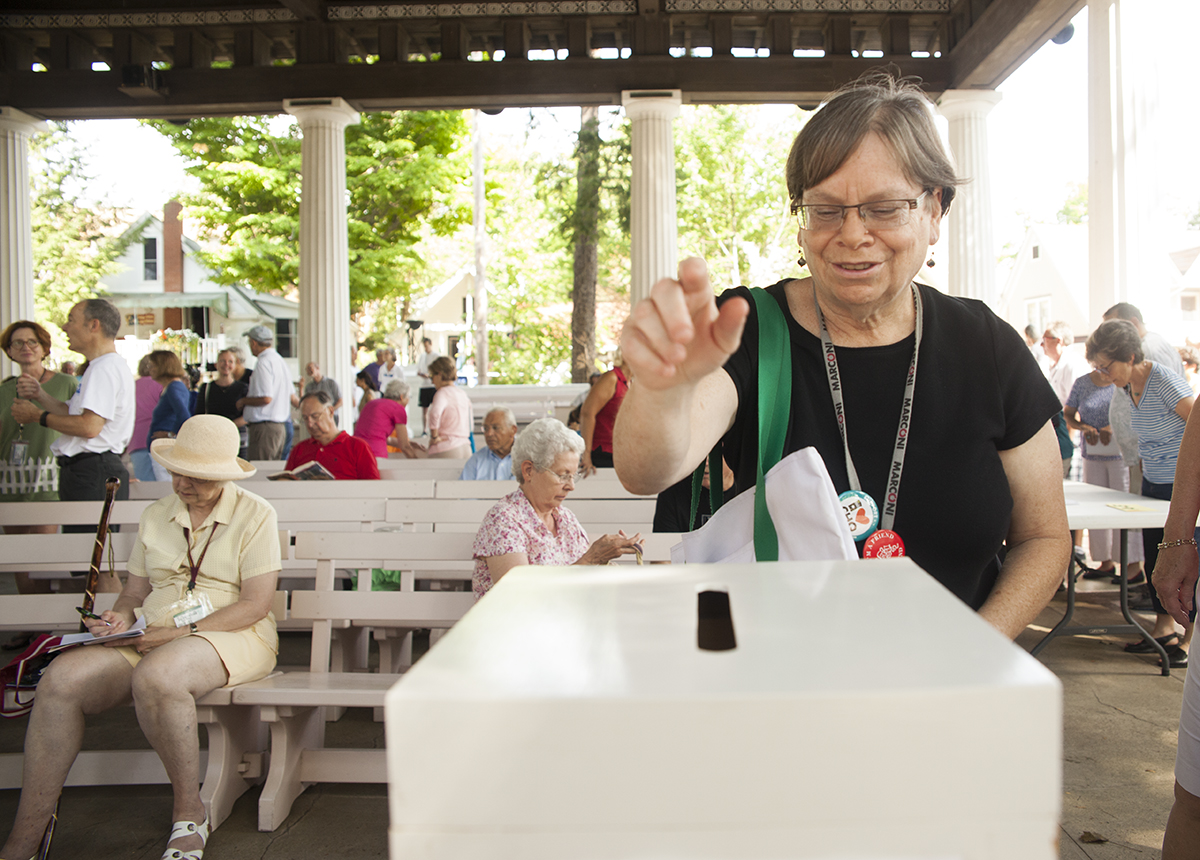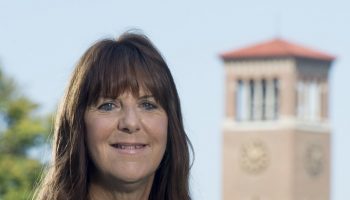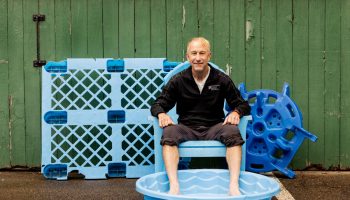Property owners have elected Bill Neches to Chautauqua’s board as a Class B trustee in the first contested election since 1970.
The Chautauqua Corporation meeting took place Saturday in the Hall of Philosophy, directly following the Chautauqua Property Owners Association meeting the hour prior.
Neches, the exiting president of the CPOA and its Class B trustee nominee, was elected with 144 votes to self-nominated Markie McCarthy’s 73. Neches received more than 66 percent of the vote. The Institution’s board includes four Class B trustees elected by Chautauqua Institution property owners who have the same authority and responsibilities as appointed board members.
To avoid nominations on the floor of the meeting — leaving no time to confirm an individual’s eligibility — the board had made it mandatory that nominations be submitted no more than 30 days and no later than 10 days prior to the meeting. Submissions were due Aug. 3.
Chautauqua Institution Board of Trustees Chairman James A. Pardo Jr. began the meeting by approving last season’s minutes, with two name corrections. Pardo also thanked trustees Tim Renjilian and Karen Arrison for their service, as both will be leaving the board after this term. Renjilian has reached the eight-year term limit and Arrison has accepted a leadership position with a different nonprofit organization in Buffalo, New York. Greg Miller was also recognized as he is ending eight years as a Class B trustee.
The conversation then shifted to the election.
After presenting the biographies of each nominee, the meeting went into recess for about an hour as property owners voted. Owners of property, designated voters or voters by handwritten proof of proxy were able to vote.
Six people were picked by Pardo monitor the voting process and tabulate the results. The inspectors were Matt Ewalt, associate director of education and youth services; Rindy Barmore, executive assistant to the president and secretary of the Chautauqua Corporation; George Murphy, vice president and chief marketing officer; John Shedd, director of operations and administration of architectural and land use regulations; Sebby Baggiano, vice president, treasurer and chief operating officer; and Sam Price, Chautauqua Institution legal counsel.
As votes were being tabulated, the meeting was brought back in session by Pardo and Baggiano presented the financial report. Baggiano said the Institution passed a financial audit, as has been the case in the past.
Baggiano said the past year had been “year two of the three-year-long plan to maintain flat expenses for the Institution.” He said between 2014 and 2015, the Institution spent more on the four pillars of Chautauqua (arts, education, religion and recreation) than on operating costs.
The Athenaeum Hotel saw an increase in gain in operating income, including making the leap from a $126,000 loss in 2014 to a $204,000 gain before depreciation was calculated. Baggiano said that’s due in part to an about 80 percent occupancy rate and more group events, including weddings.
After the question was raised about how interest from the Chautauqua Foundation’s endowment is allocated, Pardo said the Institution does not control the payout.
Pardo said the Institution runs on about a $32 million annual budget, with $26 million in earned revenue. Approximately $3.9 million comes from the annual fund to the Institution for current-year spending. On a net basis as of this point, Pardo said he expects approximately $1.35 million from the endowment and the other money will come from “single-shot donations for a specific purposed used when in programming, both individuals as well as corporate sponsorship.”
“From the Institution’s standpoint, we’re banking on getting approximately $6 [million] a year in total philanthropy for those three buckets,” Pardo said.
Pardo asked for questions from individuals who had not asked questions at board open forums or Pardo’s office hours.
Chautauquan Hale Oliver asked what has changed in policy, as Amphitheater construction has begun without all the money that has been pledged. Pardo said that was never the case; the board’s policy is to have all funds for capital projects pledged but not necessarily in hand — and the Institution does not have a history of unpaid pledges. Pardo said Oliver’s claims in public writings that property owners may be “assessed” to cover funding shortfalls “are simply false.”
One Chautauquan cited coverage of the most recent open forum in The Chautauquan Daily, in which Pardo said other projects are ahead of a long-term transit plan, and such a plan would probably come in the next strategic plan. The person Saturday asked why transportation was not being put as a priority on the grounds.
Pardo said he wanted to clarify that transportation has been a priority and money and effort are being put into roads and transportation yearly. He said his previous statements regarded the long-term plan or committee, not the importance of transportation.
After that question, the vote results were ready to be announced. The meeting adjourned immediately following the announcement of the election of Neches to the open Class B trustee seat.






